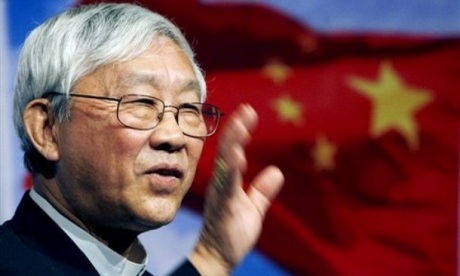Cardinal Joseph Zen Ze-kuin, 86, sits down for lunch. Chatting and smiling, he lists the options for main course at a private dining room in Bishop Lei International House, a church-owned hotel founded originally as a school for the De La Salle brothers.
It’s perched high in the Mid-Levels of Hong Kong Island, high but not quite high enough to see out over the bay and toward China where controversy has been mounting over what Vatican sources — clearly the Holy See’s communications office run by American Greg Burke — claim is a fairly imminent deal with Beijing on the appointment of bishops.
Cardinal Zen’s trip to Rome weeks earlier to broach the matter with Pope Francis has raised the temperature of the debate and almost certainly triggered the Vatican’s anonymous drop to several media outlets.
After crossing himself, saying grace silently and then crossing himself again, the bonhomie is parked for a bit and Cardinal Zen is straight down to business.
Next to his bowl of soup (“I don’t eat salad”) is a printed copy of the recent comment piece by Father Michael Kelly, UCAN’s executive director, titled: The Vatican-Chinese bishops kerfuffle.
But it was the subheading Cardinal Zen was focused on: “What is happening right now is no way unprecedented in recent Catholic history in China.”
Cardinal Zen has made annotations in blue biro and, turning his sharp eyes on me as I try and broach the topic du jour, he lays his hand on Father Kelly’s article and says: “I read this one and I find I have to put in order some facts.”
“Firstly, what is happening is not normal, absolutely is novel — nothing similar has happened before,” he says.
“During many years they had their own bishops, there was no communication between the church in China and the Vatican.
“So when the open policy started [under Deng Xiaoping from 1978] communication became easy, so many of the old bishops ordained illegitimately made representations to the Holy See through their friends.
“The Holy See made some investigations and approved some of them, though not all.
“The investigation was whether they were decent people and whether they were under pressure — of course they were under pressure. The investigation was about whether they were good people and many were, so the Holy See was very happy.
“They [the open church] also needed new bishops, so they used elections — actually fake elections — so the government chose people [to be bishops]. Some of these people were courageous enough to ask [the Vatican] for approval, so after some investigation by the Holy See … they were legitimized.
“In the meantime they [the Vatican] ordained underground bishops and there was a special facility that they could ordain without approval and then seek approval later and have it ratified — this is before and immediately after the Cultural Revolution.
“Many underground bishops were arrested, so they needed to ordain their successor or even two successors. So when the Holy See got around to legitimizing them, there were often two bishops in the underground and the open church.
“In Rome the underground bishop is considered the bishop, while the one in the open church is only the auxiliary. That was the practice for several years under Cardinal Tomko [prefect of the Congregation for the Evangelisation of Peoples]. He was from Czechoslovakia, so he knew the communists, hey? So they came to know that many people in the open church were good people, so they legitimized people in the church and they encouraged people like me to go and teach in the seminaries in China. Continue reading
Additional readingNews category: Features.




